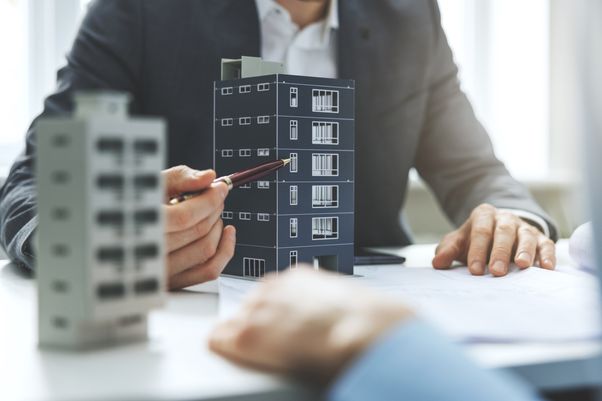Behind every residential neighborhood, commercial high-rise, or mixed-use complex stands a visionary—someone who saw not just land, but potential. That visionary is the real estate developer, the driving force behind the transformation of raw property into thriving, livable spaces.
While the end result of a real estate project may be what gets attention—a sparkling condominium, a bustling retail plaza, or a modern office building—the work behind the scenes is a long and complex process. It involves meticulous planning, financial risk-taking, market analysis, legal navigation, and the coordination of countless professionals. None of this happens without the guidance and leadership of a real estate developer.
In this article, we will explore what a real estate developer does, how they influence both the built environment and the economy, and why their role is more relevant than ever in shaping the future of communities.
What Does a Real Estate Developer Actually Do?
The term “real estate developer” is often associated with construction or investment, but the role encompasses much more. Development is about turning ideas into real, physical spaces that people live in, work in, and enjoy. It’s a profession that blends creativity with practicality, vision with execution.
A developer is typically involved in every stage of a project:
- Identifying and acquiring property
- Securing financing
- Conducting feasibility studies
- Obtaining permits and approvals
- Working with architects, engineers, and designers
- Overseeing construction
- Managing sales, leases, or operations
At its core, development is about creating value—not just monetary value, but social and environmental value as well. A skilled real estate developer doesn’t just build; they build with purpose.
The Phases of a Real Estate Development Project
To understand the scope of a developer’s work, it helps to look at the various phases involved in a typical real estate project.
1. Land Acquisition and Site Analysis
Every development begins with land. A developer identifies a potential site and conducts due diligence to understand zoning restrictions, environmental risks, utility access, market demand, and legal encumbrances. They must assess whether the site is suitable for the intended project—and whether it’s worth the investment.
This phase requires a keen understanding of local regulations, market trends, and potential roadblocks. The right piece of land can make or break a project.
2. Feasibility and Planning
Before any construction begins, a developer must determine whether the project is financially viable. This involves detailed pro forma modeling—calculating estimated construction costs, financing requirements, operating income, and potential returns.
If the numbers work, the developer moves on to planning, engaging with architects and consultants to design a product that aligns with market demand and complies with regulations.
3. Entitlements and Permits
Navigating the complex world of building permits, zoning approvals, and community feedback is one of the most challenging tasks a developer faces. This process can involve:
- Rezoning applications
- Environmental impact reports
- Public hearings and community meetings
- Coordination with city planners and legal counsel
Obtaining approvals can take months or even years, but it’s an essential step toward making the project a reality.
4. Financing and Investment
Real estate projects are capital-intensive. Developers typically secure financing through a combination of equity investors and debt from banks or private lenders.
A successful real estate developer must be adept at pitching their vision, building financial models, and negotiating favorable terms with backers. This ability to raise and manage capital is one of the most critical components of successful development.
5. Construction and Project Management
With financing in place and permits approved, construction begins. The developer hires a general contractor and often retains project managers to oversee progress, budget adherence, and quality control.
Even during construction, developers must remain involved—handling change orders, resolving conflicts, and ensuring that timelines are met.
6. Marketing, Leasing, and Sales
Once construction is complete (or nearing completion), the focus shifts to monetization. Depending on the type of development, this may involve:
- Selling residential units
- Leasing retail or office space
- Hiring property managers for long-term operation
Strategic marketing and pre-leasing are key to ensuring the project becomes profitable quickly.
Types of Real Estate Developers
Not all developers specialize in the same kinds of projects. Understanding the various paths can give you insight into the diverse opportunities within the field.
Residential Developers
Focus on single-family homes, townhouses, apartment buildings, and condominiums. They may build from scratch or convert existing structures.
Commercial Developers
Specialize in retail centers, office buildings, industrial parks, and hotels. These projects often have complex tenant requirements and longer timelines.
Mixed-Use Developers
Combine residential, retail, and commercial spaces into integrated developments. These projects are complex but offer synergy between uses and higher long-term value.
Urban Infill and Redevelopment Specialists
Work in dense urban areas to revitalize underused or abandoned properties. These projects often involve adaptive reuse and historic preservation.
Each type of real estate developer brings a unique set of skills, networks, and strategies to their work.
The Impact of Development on Communities
Beyond profitability, real estate development plays a key role in shaping the fabric of cities and towns. Developers have the power—and the responsibility—to contribute positively to communities.
Economic Growth
Development stimulates job creation, increases tax revenue, and boosts local businesses. From construction workers to service providers, entire ecosystems benefit from new projects.
Housing Solutions
In times of housing shortages, developers play a vital role in increasing supply and offering diverse options—from affordable units to luxury condos.
Public Spaces and Amenities
Many projects include parks, plazas, or public infrastructure improvements. Developers often collaborate with municipalities to enhance livability.
That said, not all development is inherently good. Concerns about gentrification, displacement, and environmental degradation highlight the importance of ethical and sustainable development practices.
The Skills That Set Top Developers Apart
Being a successful developer requires more than money and ambition. It demands a versatile set of skills that span multiple disciplines.
Vision and Creativity
Great developers see potential where others see risk or limitation. They imagine what could be—and then plan how to achieve it.
Financial Literacy
The ability to read markets, build models, analyze risk, and structure deals is fundamental. Even a small miscalculation can result in millions lost.
Negotiation and Leadership
Developers deal with landowners, city officials, banks, contractors, and tenants. Strong negotiation skills and the ability to lead diverse teams are essential.
Resilience and Patience
Projects can take years, and obstacles are inevitable. A resilient mindset helps developers adapt and keep moving forward.
If you’re considering a career as a real estate developer, these are the traits worth cultivating.
Real Estate Development in a Changing World
Today’s development landscape is being reshaped by global trends—from climate change to digital transformation to shifting demographics.
Green and Sustainable Development
Eco-friendly building materials, energy-efficient systems, and low-carbon construction practices are no longer optional—they’re expected. Developers who embrace sustainability gain a competitive edge and contribute to a healthier planet.
Tech Integration
Smart buildings, digital twin models, and proptech innovations are becoming standard. Developers are increasingly partnering with tech firms to deliver high-tech solutions.
Changing Lifestyles
As remote work grows and urban lifestyles evolve, developers must adapt. Think flexible floor plans, co-living spaces, wellness-focused design, and integrated amenities.
A forward-thinking real estate developer doesn’t just react to change—they anticipate it.
Final Thoughts
At first glance, a real estate project might just seem like another building going up. But when you look closer, it’s clear that every development is the result of countless decisions, risks, collaborations, and innovations—all driven by a single person or team committed to making a vision come to life.
The role of the real estate developer is one of complexity, responsibility, and creativity. It demands a sharp business mind, a deep understanding of the built environment, and a willingness to navigate uncertainty for the promise of future value.
Whether you’re an aspiring developer, an investor, or someone simply curious about how buildings come into existence, recognizing the immense role these professionals play is the first step toward appreciating the full lifecycle of real estate.
And at the heart of it all is the belief that space can—and should—improve lives. That’s what drives every successful real estate developer forward, one project at a time.



































